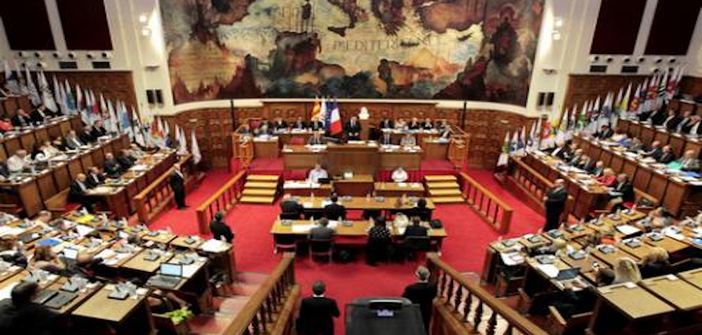Politics is a profession built on convictions, and one certainly cannot accuse Christian Estrosi of failing to assert his with determination whenever necessary. This was once again the case during the debate on budget orientations for the year 2021.
“Despite being marked by the effects of multiple crises that occurred in 2020, the year 2021 will be one of economic recovery and resilience for our territory. More than €366 million will thus be invested this year and over two billion euros during the 2021-2026 period,” the president announced in his introduction.
The oratory duels were introduced by the President of the Metropolis with the presentation of the structural projects: “the protection of our citizens’ health, the expansion of the economic employment pact actions, the continuation of the implementation of the Climate Plan actions, new local works in each of our municipalities”, not forgetting the special plan for storm Alex, whose cost is estimated at 800 million euros.
How can this be achieved? Christian Estrosi’s response is direct: “a sound financial situation allows us to finance our investments while controlling our debt and without increasing our tax rates.”
Is it necessary to say that the President of the Metropolis’s proposals were not to the taste of the opposition groups?
The nationalist-gatherer Jean Moucheboeuf chose a litote for his reply, selecting the fable of the Cicada and the Ant, “Estrosi sings, sings… indebts, indebts… without worrying about the approaching crisis…”. In this regard, he proposed defining a maximum ceiling for borrowing and a minimum funding rate to clean up metropolitan finances and protect against the coming crisis.
The ecologist Juliette Chesnel chose interrogation: “Do we want a budget that is for concrete, pollution, overtourism? Or do we want a budget that will enhance our resilience, prepare our metropolis for the climatic and social challenges of this century? Do we want a budget of the 20th or the 21st century?”
The answer being in the question, her judgment was unequivocal: “you continue with your grandiose projects while our territory suffers. Hundreds of millions of euros are spent on trivial projects while our citizens suffer!”, she asserted, the blade replacing the tongue. It was Philippe Pradal, the vice-president in charge of finances, who had the task of putting things back in place with his own competence and rationality.
In an intervention with the tones of a “lectio” on political economy, he recalled the Keynesian principle of “good debt” which, when intended for productive and future-oriented investments, creates the conditions for future growth (and employment) compared to the “bad” debt used for unproductive expenditures.
He reminded that the Regional Audit Chamber stated in its latest report on the control of operating expenses and the debt repayment capacity of the Metropolis.
Checkmate? Certainly not, because when one is an activist, one tends to be radicalized in their positions, but at least this intervention allowed ideals to be grounded in reality. Even in a “radical” debate, 2+2 equals 4 and not 22!


